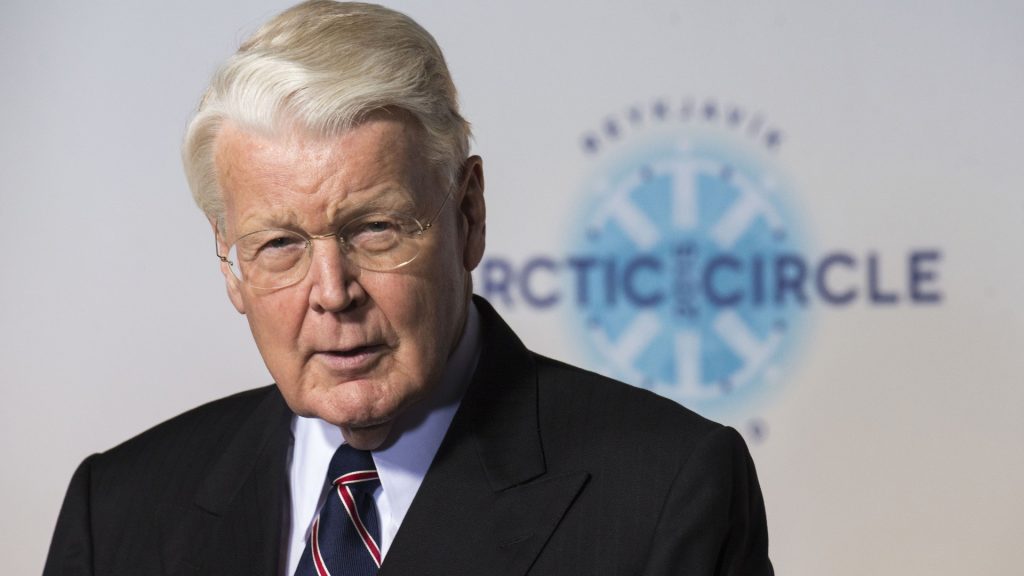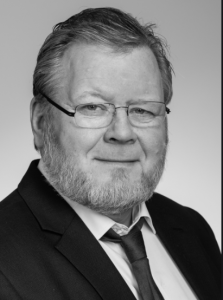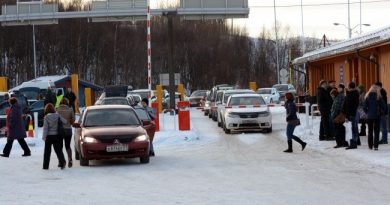Iceland gives green light to new Olafur Ragnar Grimsson Arctic institute

Iceland has given the green light to the new Olafur Ragnar Grimsson Arctic institute and has announced financial support towards the project.
“At its last meeting, the government agreed on Prime Minister Katrin Jakobsdottir’s proposal for the establishment of the Olafur Ragnar Grimsson institute on Arctic issues in Reykjavík,” the government said in a news release on Tuesday. “Arctic Circle will receive 10 million ISK from the government’s joint budget to support further preparations for the project.”
The new Arctic centre was was among the proposals in a recent report titled Greenland and Iceland in the New Arctic.
The report, released in December, was written by Ossur Skarphedinsson, a retired Icelandic politician and former foreign affairs minister, on behalf of the Foreign Ministry’s Greenland Committee, in order to increase cooperation between the two countries as well as Iceland’s overall involvement in the Arctic.
Grimsson established The Arctic Circle forum in 2013 as a way to bring together those interested in the Arctic, whether in the North, or elsewhere in the world. Its annual assemblies in Reykjavik draw more than 2,000 people and are attended by everyone from politicians and Indigenous leaders to NGOs, businesspeople and academics.
The Arctic Circle has gone on to regularly hold satellite forums throughout the year in regions around the world including places like Quebec City, Japan, Alaska and South Korea.
Emphasis on young scientists and researchers
The December report highlighted the assembly’s role in raising Iceland’s profile in the Arctic. The creation of a permanent home for Arctic Circle, as well as building on its activities, was among the 99 recommendations.
“The new international center will provide a venue for a variety of interaction between Icelandic and international universities with special emphasis on young scientists and researchers of Arctic issues,” Skarphedinsson told Eye on the Arctic.
“It will also provide facilities, temporary or lasting, for international NGO’s, projects or associations related to the Arctic that need a base point in Iceland. In short, it’s designed to be a driver cum stimulator cum melting pot of new ideas concerning Arctic issues, just as the Arctic Circle has been from inception.”

The Olafur Ragnar Grimsson institute will be an NGO with board members appointed by Iceland’s Prime Minister, Foreign Minister, universities and the Arctic Circle. The Olafur Ragnar Grimsson institute will remain the project’s working monniker, with an official name to be eventually chosen by the board once it’s up and running.
The institute will mostly be financed by donations. Land near the University of Iceland in Reykjavik has already been secured for the new building.
An international design competition for the new space will be announced in future.
Skarphedinsson says Grimsson’s foresight on the international importance of the Arctic, and commitment to northern affairs, has had impact around the world and that the new project will help continue the work.
“[Grimsson] has constantly preached the Arctic gospel, and especially taken Greenland and Greenlandic issues to his heart,” Skarphedinsson said. “As the founder and leader of the Arctic Circle platform, with huge annual international assemblies in Reykjavik and smaller forums all over the world, he made the Arctic Circle the biggest and most influential forum for debate and new ideas on the Arctic and climate.
“[This project will] provide a future home in Iceland for the Arctic Circle HQ, and secure continuity in its work far into the future.”
Ossur Skarphedinsson’s name was incorrectly written as Ossur Skarp in an earlier version of this text. Also, the new institute, while it will house the Arctic Circle and its Secretariat, and may partially hold Arctic Circle Assemblies in future, it will not hold future Arctic Circle Assemblies in their entirety as indicated in a previous version of this story. This version of the text has been corrected.
Write to Eilís Quinn at eilis.quinn(at)cbc.ca
Related stories from around the North:
Canada: New research chair at Laval University to help better understand permafrost changes in Arctic Quebec, Eye on the Arctic
Finland: Finland’s Defence Ministry blocked Chinese plans for research airbase in Lapland, Yle News
Greenland: Greenland accedes to UN treaty against mercury pollution, Eye on the Arctic
Russia: Climate change has prolonged Siberian heat by at least 600 times, say researchers, Eye on the Arctic
United States: Climate change is worsening water scarcity in rural Alaska says study, Eye on the Arctic



